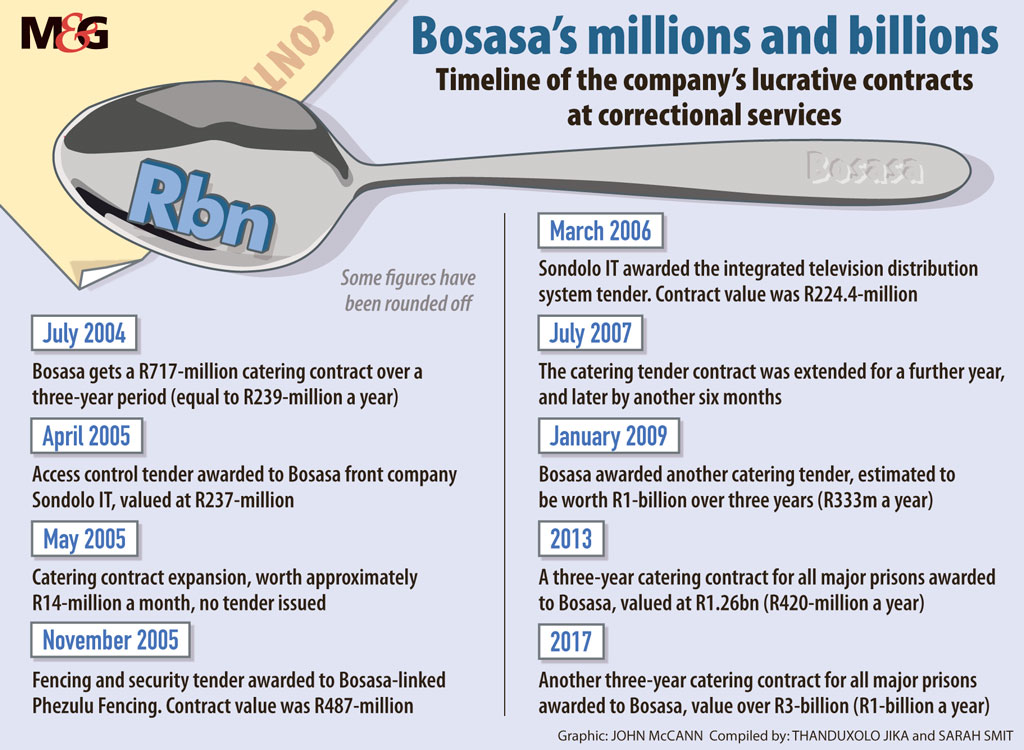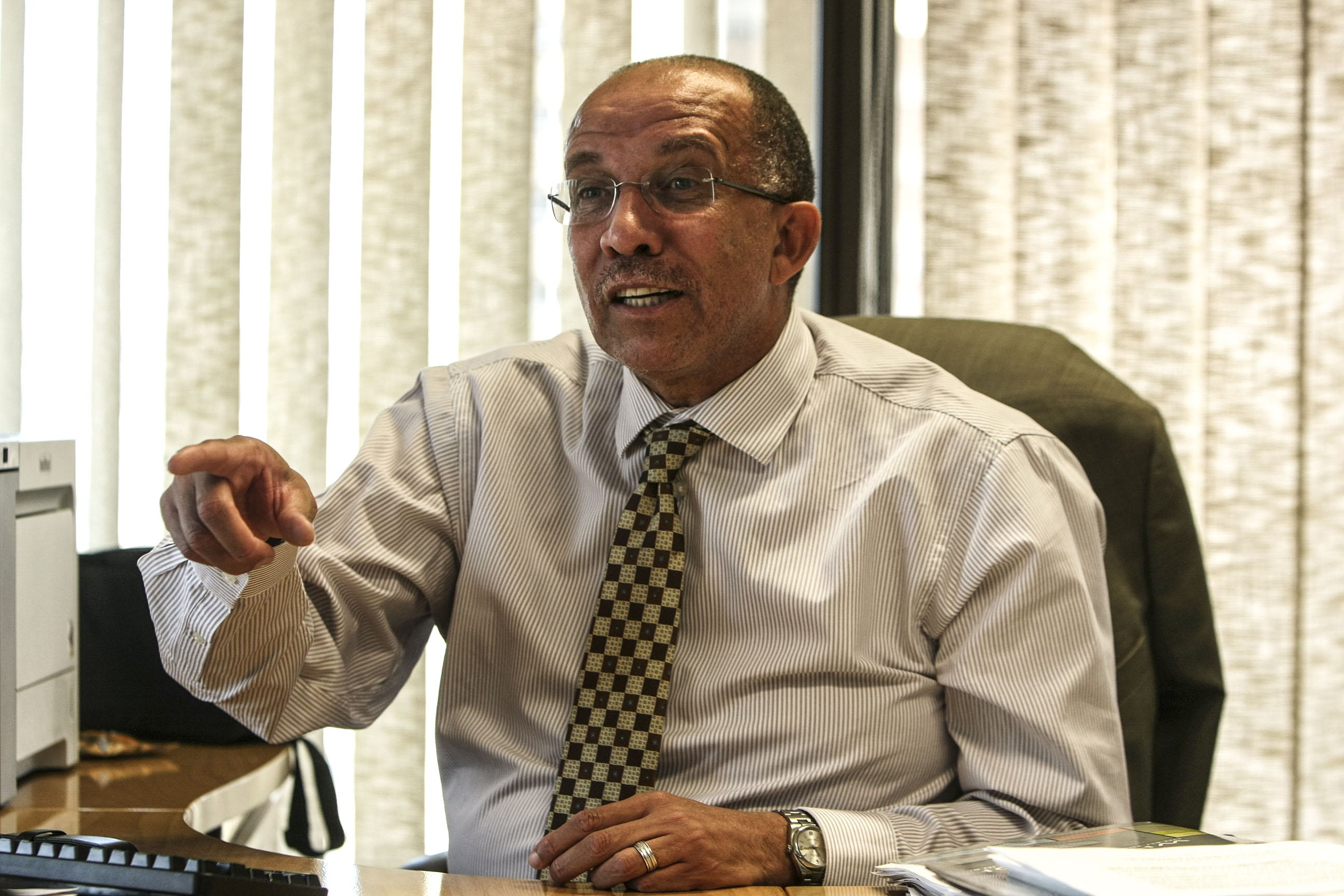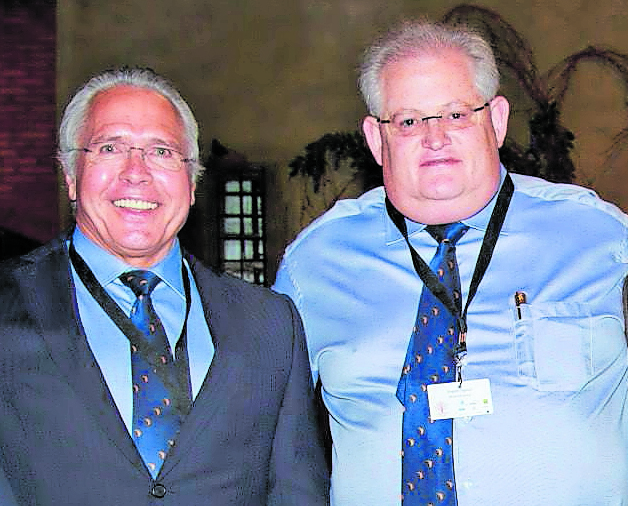Tom Moyane, the former commissioner of correctional services, is said to have blocked the blacklisting of Bosasa as recommended by treasurys chief procurement officer Kenneth Brown. (Craig Nieuwenhuizen/Gallo Images)
Zuma’s future Sars commissioner stalled when confronted about the SIU’s damning findings linking the company to corruption, which saw it pocketing billions in state tenders
Former correctional services department director general Tom Moyane blocked treasury recommendations to have Bosasa blacklisted from conducting business with the government, confidential government documents reveal.
The treasury’s attempts to persuade him to blacklist the controversial company, which has scored and continues to rake in billions of rands from government contracts that run until 2020, began in 2013, after allegations of bribery contained in a 2009 report by the Special Investigating Unit (SIU).
It was one of the first issues picked up by the treasury’s first chief procurement officer, Kenneth Brown.
The restriction would have halted Bosasa’s and its affiliates’ monopoly over government contracts and prevented billions of rands being siphoned from state coffers. The contracts were allegedly rigged by Bosasa being allowed to draw up tender specifications.
The company’s former chief operations officer, Angelo Agrizzi, currently testifying at the Zondo commission of inquiry into state capture, has claimed that Bosasa, which is led by Gavin Watson, a long-time ANC supporter, bribed government officials and politicians.
According to the SIU report, which was referred by its then head Willie Hofmeyr to the Hawks and the National Prosecuting Authority (NPA), “inasmuch as there was an improper and corrupt relationship between [Patrick] Gillingham [a former correctional services chief financial officer] and Bosasa, the SIU is satisfied that the entire procurement process in each of the tenders was undermined to the extent that Bosasa and its affiliates were unduly and unfairly advantaged as against their competitors for and in respect of various tenders”.
It also said: “On the evidence before it, the SIU is accordingly satisfied that the improper and corrupt relationship between Gillingham, [correctional services] commissioner [Linda] Mti and the Bosasa group of companies has seriously undermined the procurement process and exposed the DCS [department of correctional services] to civil suits by competitors who were unfairly treated.”
In 2013, the treasury received a request from the department of justice for guidance on restricting suppliers who had colluded with government officials in the awarding of tenders, and, in this case, Bosasa.
“According to [the] justice [department], despite the SIU findings, these suppliers continue to bid and benefit from tenders in other government departments,” Brown said in a memo to his director general, Lungisa Fuzile, in June 2013.
This followed a March 26 2013 meeting between correctional services officials led by Moyane and treasury officials led by Brown.
In the minutes of that meeting, Brown told Moyane that Bosasa should be blacklisted because of the serious allegations. “The national treasury is of the view that the allegations are so serious that they warranted a restriction of the Bosasa and its affiliates from doing business with government by the DCS,” the minutes read.
Brown also wanted a meeting between the treasury, the SIU, the Hawks and Moyane’s office to get an update about criminal investigations.
The minutes further reveal how Moyane claimed he was aware of a preliminary SIU report but not a final one, so he could not act on it.
But the report had been tabled by Hofmeyr before Parliament’s correctional services portfolio committee in November 2009.

The minutes continue: “According to his [Moyane’s] knowledge, the SIU never finalised its investigation and had handed this task to the Hawks, who are still busy with the investigations in this regard. To this end, the commissioner requested that the SIU provides him with such report if it is in existence and with also a letter indicating that there is conclusive evidence of any wrongdoing from the part of Bosasa for his consideration.
“Once he receives this report he would apply himself with the help of his department’s legal team.”
According to a government source, who did not want to be named, the treasury also received a legal opinion, which stated that the correctional services department could restrict a supplier based on a preliminary report.
The source said, after that, the treasury did not hear from Moyane again about the issue. Instead, Bosasa was awarded another three-year catering contract worth R1.6-billion (R420-million a year).
Moyane did not respond to requests for comment.
Treasury confirmed on Thursday that it had approached Moyane. “The OCPO [office of the chief procurement officer] did not succeed in getting the commissioner to restrict Bosasa,” said treasury spokesperson Jabulani Sikhakhane.
Brown’s memorandum to Fuzile sought not only to inform him but also to get him to intervene and organise a meeting with the correctional services department on the matter.
 Treasury’s chief procurement officer Kenneth Brown (Gallo Images/Foto24)
Treasury’s chief procurement officer Kenneth Brown (Gallo Images/Foto24)
At the end of the R1.6-billion catering contract in July 2016, Bosasa was given a six-month extension and then awarded the contract for all correctional centres from 2017 until 2020, at a cost of more than R3-billion.
By then, Moyane, who now runs a florist boutique, had been appointed the South African Revenue Services commissioner by then-president Jacob Zuma, whose name also features in the evidence being present to the Zondo commission.
Moyane was sacked last year by President Cyril Ramaphosa following a recommendation by the commission of inquiry into tax administration chaired by former judge Robert Nugent. According to Ramaphosa, this was to avoid the further deterioration of the tax administration system, allegedly caused by reckless mismanagement.
This week, it emerged during Agrizzi’s testimony that the 2010 appointment of Moyane as prisons commissioner coincided with an additional R250 000 having to be paid by Bosasa to officials in the department every month. According to Agrizzi, Bosasa ended up forking out R750 000 a month to the officials.
The money was allegedly split between department officials but Agrizzi could not say whether Moyane received a share of the money.
Agrizzi told the commission on Wednesday that, after former prisons’ commissioner Mti’s resignation and Gillingham’s loss of power in the department, Bosasa turned its attention to other officials, including Zach Modise, who would eventually become correctional services commissioner.
Watson told the Mail & Guardian this week he was waiting for Agrizzi to finish his testimony before responding to the allegations he had made at the commission. “I am not going to apply for anything right now. I see he is talking a lot of nonsense, pretending to be a hero on TV,” Watson said.
 Allegations have been flooding the Zondo commission into state capture this week as Angelo Agrizzi has testified that his former employers bribed officials and politicians to score lucrative contracts with the government. (Simphiwe Nkwali/Sunday Times)
Allegations have been flooding the Zondo commission into state capture this week as Angelo Agrizzi has testified that his former employers bribed officials and politicians to score lucrative contracts with the government. (Simphiwe Nkwali/Sunday Times)
In 2010, the M&G revealed how Moyane had decided to fight a court bid by a rival catering company, Royal Sechaba, which aimed to block the awarding of a catering contract worth almost R1-billion to Bosasa. Royal Sechaba, in its 2010 application to the high court in Pretoria, claimed that an anonymous correctional services employee had informed it that its tender bid was being “tampered with” and asked the court to readjudicate the tender.
The department, under Moyane’s correctional services predecessor, Xoliswa Sibeko, reportedly decided not to defend the matter.
But, after Moyane’s appointment in May 2010, the department informed Royal Sechaba it would. At the time, the department declined to comment on this change of heart.
When Sibeko was dismissed, she reportedly opposed the extension of Bosasa’s contract and supported the SIU’s investigation into the company’s dealings with the department. The court reportedly found that the tender was corruptly awarded.
Correctional services spokesperson Logan Maistry, when asked this week whether Moyane had acted on the treasury’s advice, said the department could not comment because of the Zondo commission proceedings.
“In this regard, DCS has and will continue to co-operate with all law enforcement agencies, as well as other relevant entities,” he said.
Treasury’s OCPO has already had two officials testify before Zondo’s commission.